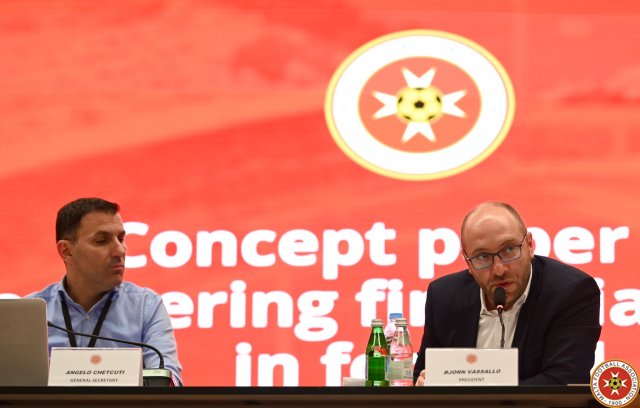The Governance reform which has been initiated by the Malta FA is very focused in its remit, mainly the delivery of a strong regulatory framework in the compliance on many levels,’ said Malta FA President Bjorn Vassallo whilst addressing the Executive Board earlier on today. The Association President thanked both advisory committees led by Dr Cory Greenland and Dr Peter Fenech respectively for their contribution when presenting the agenda to the members present.
At a meeting the Malta FA administration presented draft proposals for Anti-Money Laundering with the aim to protect the football industry against financial crime. Vassallo reiterated that ‘Like others in Europe, we have identified the risk of money laundering related to the football sector and created a number of regulations to safeguard and protect the whole system, including football officials, administrators, and volunteers working and investing in this sector and who in their vast majority are honest and genuine people’.
Mr Vassallo stated that the Malta FA will be the first sports organisation in the country to strengthen its Anti-Money Laundering safeguards.
Another topic up for discussion was club licensing with restrictions the new principles in domestic Club Licensing which is a strategic objective under the pillar Development & Grow. The Association’s administration tabled its proposals which include requisites on the legal, administrative, financial and sporting criteria.
Recommendations proposed include maximum thresholds (proportion of total spend) on the spending on salaries for clubs with a professional/semi-professional license, an agreed % spend on youth development and the tracibility of club financing as part of the AML regime.
These proposals are set for an internal consultation period in the next three months from November to January next year, with the aim to consolidate the recommendations before presenting a final document at the General Assembly in March 2022. Approved rules will become effective as from season 2022/23 other than where exemptions are provided for a gradual long-term implimentation.









